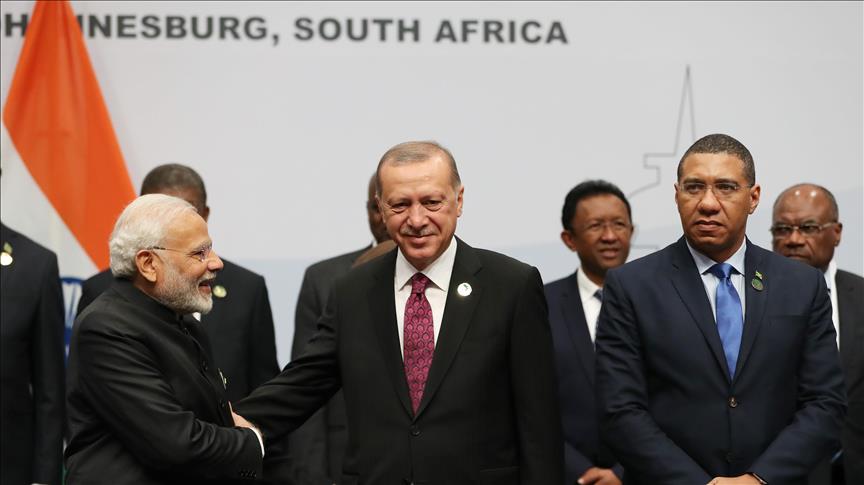
During his visit to China, Foreign Minister Hakan Fidan's remarks regarding Türkiye's potential participation in BRICS indicate Türkiye's intention to chart a new course in international relations. BRICS, consisting of Brazil, Russia, India, China, and South Africa, represents a collective force that could potentially alter global economic and political balances.
Türkiye's interest in BRICS is viewed as a reflection of its search for alternatives to its traditional Western allies. Despite Türkiye's Customs Union agreement with the E.U., Fidan's statements suggest a willingness to explore new opportunities for collaboration on different platforms like BRICS.
The significance of BRICS for Türkiye is particularly associated with its desire to demonstrate a more independent and balanced stance vis-a-vis the West. Seen as an alternative to Western organizations such as NATO and the G20, BRICS could offer Türkiye a new strategic arena for its initiatives.
However, the potential challenges Türkiye might face upon joining BRICS cannot be overlooked. Especially considering Türkiye's NATO membership and its complex relations with BRICS members like Russia and China, there could be further complications in its relations with the West. Additionally, discrepancies between BRICS' core objectives and policies and Türkiye's priorities should also be taken into account.
Given its membership in NATO and the dynamics of its relations with the West, Türkiye may face challenges as a BRICS member that require careful evaluation.
In 2006, Brazil, Russia, India, and China initiated the formation of the "BRIC" alliance, aimed at bolstering the representation of developing nations in global affairs. This strategic coalition sought to amplify the influence of emerging economies within the international economic landscape, emphasizing cooperation, economic development, and the safeguarding of mutual interests on the global stage.
The inclusion of South Africa in 2011 expanded the alliance, prompting the adoption of the acronym "BRICS." This acronym reflects the English initials of the participating nations: Brazil, Russia, India, China, and South Africa.
At the 2023 BRICS Summit hosted by South Africa, a pivotal decision was made to extend membership, welcoming Egypt, Ethiopia, Iran, Saudi Arabia, and the United Arab Emirates into the fold as of January 1. This expansion, marking a significant evolution, is anticipated to usher in a new phase, possibly under the appellation "BRICS+."
On the other hand, North Korea recently has announced its intention to join the BRICS bloc, potentially redefining its long-standing geopolitical isolation. This announcement comes as BRICS is considering significant changes to the global financial architecture, including creating an alternative currency to the U.S. dollar. The move underscores the bloc's growing influence and appeal, particularly as it expands and reshapes international economic and political dynamics.
BRICS nations, including economic powerhouses like China and Russia, boast a combined population of 3.5 billion people, representing 45% of the global populace. Economically, these countries command a substantial presence, with their collective GDP amounting to $28.5 trillion, accounting for approximately 28% of the world economy.
Additionally, the establishment of the New Development Bank (NDB) in 2014 underscores their commitment to financing infrastructure and sustainable development projects in developing nations, further solidifying their impact on the global stage.
Moreover, beyond their member states, BRICS engages in trade and extends economic assistance and loans to other developing nations, thus fostering broader political relationships and contributing to the evolution of a new global political landscape.